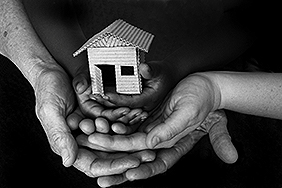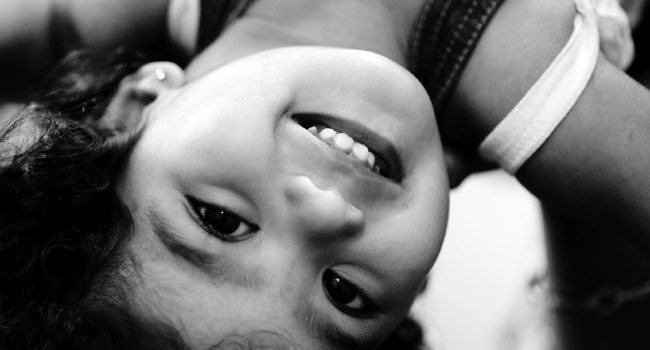Suddenly, everyone’s weighing in on what young children need. From CEOs of tech startups to the titans of philanthropcapitalism, from economists to journalists and political pundits, early development and education have become a free-for-all, the province of those whose expertise lies elsewhere.
Enter, Erika Christakis, author of The Importance of Being Little. First, her credentials. She spent her undergraduate years at Harvard, and went on for advanced degrees at Johns Hopkins, the University of Pennsylvania, and Lesley University’s Graduate School of Education. Long affiliated with Yale, she has taught preschoolers along with college courses on child development and education policy.
Yet, like many brilliant women in the pink ghetto of early childhood educators, she’s self-effacing, her intellectual acuity buried under the collective weight of a workforce that has consistently been devalued. As Christakis notes in the book’s preface, “When I accompanied my husband to professional events, I would watch people’s eyes glaze over when they learned I was ‘just’ a preschool teacher.” The disdain would often be coupled with a comment about how great it was that she was doing “God’s work.” But she dismisses her ambitions as “neither benighted nor particularly distinguished.”
Fortunately, for us, Christakis has transcended this occupational hazard to produce one of the most intelligent, compelling, and funniest books I’ve read about children in a long time. Her prose sparkles. “Let’s entertain ourselves for a moment,” she writes, “by imagining what it would be like for an adult to buy a self-help book on sexual intimacy with the same kind of off-putting and decontextualized language we might find in the Common Core.”
There’s no underestimating children here: this woman is on their side. She calls upon us to heal the “habitat of childhood,” an ecosystem under siege by adults, whose notions of what’s best for kids are seriously out of whack. She believes in children’s power and capacity. Her faith in “these strong, small characters” infuses the book with moral authority, which she wears lightly, revealing her foibles as a professional and parent, and dispensing folksy wisdom from her own vividly evoked childish escapades.
The book ranges widely, taking us from the Reading Wars to the secret lives of children, which we’re suppressing, much to Christakis’s dismay. Preschools, organized around the principle, “First Allow No Emotion,” are the worst offenders:
Conversations about topics likely to draw out emotional responses are tightly controlled to avoid going off script. A child who asks a metaphysical question about God, queries why there is evil in the world, or expresses unbridled emotion or even fear of monsters under the bed, is often deflected with pat answers or a change of subject.
Instead, we provide social-emotional “curriculum,” in the hopes of taming the beasts and inculcating them with empathy, the power of authentic experience too often lost.
Christakis tells the story of a classroom in which preschoolers were asked to make a list of “s” words related to vegetables and gardening. One child suggested the word “soul,” to which the teacher responded: “Do you mean ‘sow’ like when we sow the seeds?” He said he meant soul, “like a person.” The teacher was perplexed, and told him that his word didn’t fit on the whiteboard. But one of his peers, a little girl sitting next to him, got it: “That’s a different kind of soul word you’re talking about,” she whispered. Christakis is a kindred spirit of developmental scientist, Alison Gopnik, who plowed this terrain in The Philosophical Baby.
Her critique of America’s early childhood programs is sharp, but humane. In the chapter that includes the metaphysical discussion about “soul,” Christakis depicts a passionate fight between two preschoolers, Henry and Maddox, over a dragon puppet with iridescent scales, which ends with a high-pitched yelp and a punch in the chest. “Maddox,” Ms. Walker says, “we don’t push our friends in this classroom. I need you to say sorry to Henry.”
“That teacher was me,” Christakis writes after the vignette, her punchline a testament to the sympathy she feels for her younger self, and for her colleagues, who resort to “a shallow script involving perspective-taking and problem-solving that seems almost laughably unhelpful in this situation.” Who can blame them? They’re worried that kids’ meltdowns will reflect poorly on their classroom management skills, for which they’re being evaluated. It’s no coincidence that we’re suspending little black boys at alarmingly high rates—a preschool-to-prison pipeline, some have taken to calling the phenomenon.
The Importance of Being Little also explores the material world—including technology, early childhood’s bête noire. Both technophobes and technophiles, Christakis points out, can be naïve; some moderation of perspective wouldn’t hurt either group. But that doesn’t stop her from poking merciless fun at cooking apps. Children need to muck around with real food; that’s how they learn best. She believes we’re putting the cart before the horse, retrofitting pedagogy and child-rearing practices to technology’s latest specifications. Teachers who adhere to the field’s robust evidence base, and have the autonomy to do so, will get it right, producing the outcomes we seek.
The critical question of how we get there animates this book. In Tinkering Toward Utopia, Stanford emeritus professors David Tyack and Larry Cuban write that citizens have always sought to perfect the future by improving the young through education. But reforms have rarely lived up to our aspirations. Christakis has a solid grasp of the policies of standards-based accountability that impede our progress, and she’s not afraid to take on those who reap the benefits. “There’s money to be had from this standards business,” she writes, “and it isn’t adding value to children.”
She shines a glaring light on Lakeshore Learning, among the biggest education supply companies in the United States. They sell a “Complete Common Core State Standards Kit,” she writes, containing “everything you need to display the standards and ‘I can’ statements for Language Arts and Math!”—along with a little pocket chart to hold them. “Otherwise, how could you possibly track them all,” Christakis wryly comments, between parentheses.
Lost among the mandates and the material stuff, as Christakis laments, is loving kindness, the manna of human development:
Notwithstanding the lip service paid to developmentally appropriate practice, today’s early childhood classrooms don’t provide much motivation for healthy human relationships between teacher and child, much less between the teacher and family…Early childhood teachers are sometimes discouraged from hugging children…implicitly or explicitly, for fear of litigation.
The heart of the book is a chapter on play, the primary engine of human development. “It has long been noticed that the smartest mammals—primates, cetaceans, elephants, and carnivores—are the most playful,” anthropologist and neuroscientist Melvin Konner wrote in his epic work, The Evolution of Childhood. Yet, we are extinguishing it, transforming the children’s garden into a desert. Trial-and-error learning, often the best form of play, has already been banished from kindergarten, and is becoming increasingly rare in preschool. Playgrounds are uninspired, ” she writes, “anchored by a large plastic climbing structure that resembles a hamster Habitrail.”
Christakis cleverly exposes our folly, mapping her own early childhood experiences to the Common Core’s English Language Arts standards for kindergarten. She concludes that a playful childhood “is worth more than the accumulation of every conceivable standard, real or imagined.” Even if we assigned them value, “x wouldn’t come close to the infinite value of play to a young child’s development.”
Especially delightful is her account of how she nearly killed her sister during a rehearsal for Peter Pan. It resonated for me, evoking memories of a time when daily play was unsupervised, and we negotiated messy, human interaction without adult intervention. “I’m certain the sort of retro play I’ve described, with its implied sadism and peril, did have incalculable redeeming features,” Christakis writes. “It was complex, for one thing.”
But the landscape has been radically altered. Today’s parents, across the socioeconomic spectrum, are desperately worried about their progeny’s future, one that looks decidedly less bright. Early childhood teachers are buffeted in the aftermath of preschool’s merge with the K-12 system. This union has disturbed the delicate ecology of Rousseau’s whole-child approach, in which collaboration, empathy, and creative solutions emerge in the rough-and-tumble terrain of human relationships.
“We can fix the things that have gone wrong,” Christakis argues, while reminding us that “young children are strong enough to withstand the foolish meddling to which we subject them, if we can just get out of their way.” Good advice.
Unfortunately, for children living in the most toxic habitats of our nation, their “way” is often dangerous. The early years are no idyll, fraught as they are with domestic and community violence, substance abuse, maternal depression, extreme poverty—items on a growing list of what we now refer to by the clinical term, adverse childhood experiences. Christakis’s argument may fall on deaf ears in these precincts. Yet, it’s one that we abandon at our peril.



I can really get behind that idea of letting kids have authentic social experiences That’s why play time is such an important part of development. I’m looking for a preschool right now since my daughter is getting older, and I’ll have to make sure the staff’s thoughts align with my own on that topic.
Great to hear from you, Larry. I hope you’re able to find a preschool in which your daughter can have authentic experience. Those opportunities are precious, they’re becoming more rare as the U.S. pursues education policies that are so toxic for young children’s development. You might enjoy my most recent post on Bright Tykes, in upstate NY, where my grandchildren spend their days. As I’m visiting preschools and kindergartens in Scandinavia right, I’m so saddened by the contrast in philosophy and pedagogy.